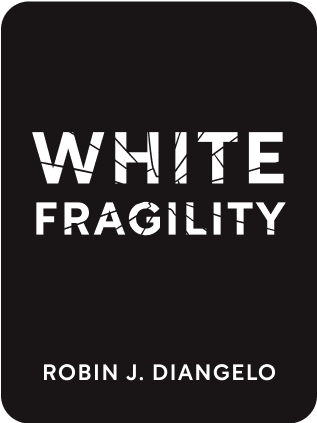

This article is an excerpt from the Shortform summary of "White Fragility" by Robin J. DiAngelo. Shortform has the world's best summaries of books you should be reading.
Like this article? Sign up for a free trial here .
What are the best White Fragility quotes? How do key White Fragility quotes highlight the main themes of the book?
White Fragility by Robin DiAngelo discusses how discomfort with one’s own role in racism leads to defending it. DiAngelo is speaking to white people, as seen in the White Fragility quotes below.
See four White Fragility quotes and what they mean below.
White Fragility Quotes
“The simplistic idea that racism is limited to individual intentional acts committed by unkind people is at the root of virtually all white defensiveness on this topic.”
Racism is not an individual character trait. The discussion of whether or not an individual white person is or is not “racist” entirely misses the point about how racism actually works. That’s what the first of these White Fragility quotes is getting at.
Racism is inherently about power within society—wielded collectively by those who have it against those who don’t. It is deeply embedded in the social, political, cultural, economic, and legal power structures of the United States. White people, as the group that has always wielded power in America, derive enormous material and psychological advantages from this racist organization of society—whether they believe they do or not.
“I believe that white progressives cause the most daily damage to people of color. I define a white progressive as any white person who thinks he or she is not racist, or is less racist, or in the “choir,” or already “gets it.” White progressives do indeed uphold and perpetrate racism, but our defensiveness and certitude make it virtually impossible to explain to us how we do so.”
The second of the White Fragility quotes speaks to white progressives. White progressives, however, believe themselves to stand in opposition to racism. Because of their own belief in their moral superiority relative to other white people, however, progressives often become extremely defensive or outraged at the mere suggestion that they, too, benefit from (and, therefore, contribute to) institutional racism. The gap between their professed beliefs and their participation (however unwitting) in a system of oppression becomes an unbearable psychological burden—triggering white fragility.
“It’s been said that racism is so American that when we protest racism, some assume we’re protesting America.”
Racism is a force woven deeply and permanently into every institution of American life. The intentions or moral positions of individual white people are irrelevant here. Racism is a system that we all participate in, that we cannot escape from, and that imposes real costs on people of color (and real benefits for white people).
It is seen in:
- The poverty rates for people of color (there is a large and persistent wealth and income gap between white and black Americans);
- The quality of the education they receive (majority-black schools receive fewer funding resources and African-Americans are less likely to receive a higher education degree);
- Health outcomes (African-Americans have shorter life expectancies than whites); and
- The alarming frequency with which black people are harassed, incarcerated, and even killed by the criminal justice system (African-Americans are incarcerated at five times the rate of whites).
“People of color may also hold prejudices and discriminate against white people, but they lack the social and institutional power that transforms their prejudice and discrimination into racism; the impact of their prejudice on whites is temporary and contextual.”
But racism is a very different phenomenon, despite superficial similarities to simple prejudice, which is what the last of the White Fragility quotes is addressing.
Racism is defined by power and control of key institutions within a society. Thus (in the context of American history), slavery, Jim Crow, and discriminatory housing policies are just some of the functions of racism. They were products of white control over the political, legal, and economic apparatus of the country.
People of color can be prejudiced toward white people and can even discriminate against individual white people; but because, as a group, they have historically been (and remain) locked out of dominant positions within the nation’s power structure, by definition they cannot be racist. In other words, a group needs power within a society to even be capable of racism. Thus, “reverse racism,” the alleged oppression of whites at the hands of black people, is a contradiction of terms. Racism cannot be “reverse”—it can only go in one direction.
A black real estate agent might act on her prejudice and discriminate against an individual white person by refusing to help them buy a home; but black people have no ability to pass laws mandating which neighborhoods white people as a group are and aren’t allowed to live in.

———End of Preview———
Like what you just read? Read the rest of the world's best summary of Robin J. DiAngelo's "White Fragility" at Shortform .
Here's what you'll find in our full White Fragility summary :
- Why white people become defensive when confronted with the idea of racism
- How today's racial hiearchy began in roots centuries ago
- How we as society can gradually overcome our deep racial divides






